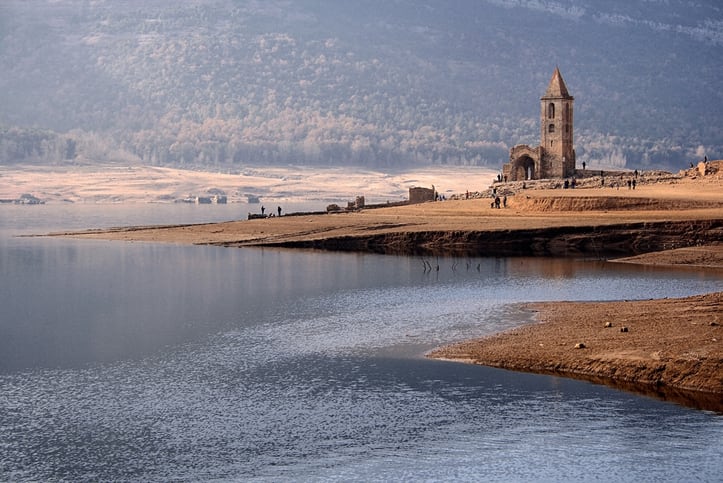Agriculture is the biggest consumer of water on earth and is, therefore, under constant scrutiny.
However, Peter Blezard of Engage Crop Solutions is challenging decision makers in Spain and around the world to focus on finding available solutions now that allow us to utilise more land for growing crops without using more water, rather than focus on imposing more stringent restrictions that will impact food production and raise food prices even more.
He warned water is becoming a critical issue not just in Southern Europe and the Middle East, where water is dubbed the new “Blue Gold”, but in the UK and Northern Europe too.
“The water situation in Catalonia and across Spain is critical but this crisis has been growing for years,” he said. “It’s an issue that is being seen not just in arid regions of the world, but in every country as record temperatures challenge everyone to look at water use. Water impacts us all, both socially and economically.”
Spanish growers, for example, face restrictions on how much water they can draw. All growers in Spain are restricted on how much they water they can draw from aquifers but the Government have threatened to cut the amount of water they are permitted to use by 80%.

The Government has backtracked a little on this following protests. But according to Blezard, the reality is that there isn’t enough water for the scale of growing across all of Spain. Agriculture accounts for 80.4% of water use in Spain and 25% of all fruit and vegetables produced in the EU are grown in Spain. These proposed restrictions are going to severely impact their ability to produce food, he warned. “This is a short-term solution that will impact food prices across the country and around the world. Obviously, we have to increase and maintain agricultural production to feed the growing population but that will come at a heavy cost to our water reserves, even if extraction of water is allowed.”
Spain, he said, is ‘watching its reserves drain away’, while many countries are already predicted to run out of fresh water.
“Too much of what we see is focused on the problem, but we must now turn our attention to finding solutions. There isn’t one simple fix, but we must adopt a range of new technologies to make much more efficient use of water in agriculture.
“Growers must produce more food and that means they need to unlock more land for agriculture. However, the key to doing that is making sure they don’t use any more water.”
Water saving technology
Engage Crop Solutions produces a water saving technology called Aqualatus that allows growers to cut their water use by half while still maintaining crop quality.
Designed to be easily applied to existing irrigation systems, Aqualatus is a blend of liquid polymers which contain billions of microscopic structures (micelles) that adhere to soil particles. These structures slow the gravitational movement of water and promote lateral movement, thereby increasing the moisture-holding capacity of the soil and also improving soil quality.
The technology is transforming growing in hot climates, according to Alfredo Garcia, director and technical manager of Agroliner Agricultura Avanzada which supplies Aqualatus to CASI, the largest tomato producing and marketing cooperative in Europe.
He explained: “In these conditions, Aqualatus is saving up to 30%-50% of water, electricity and fertilisers, which means that, because we have a monthly water expense per hectare of between $2,750 and $3,045, if we save up 30%-50%, the farmer can save up to $990 and $1,650 in water per hectare a month.”
Some growers are reporting up to 65% savings in water use while still seeing yield increases, he claimed. Surface runoff and evaporation are almost completely eradicated and gravitational movement is dramatically slowed, he added. “Reducing this natural water loss allows for irrigation volumes to be much lower and timings to be shorter as the soil is more retentive, giving growers a great return on investment.”


